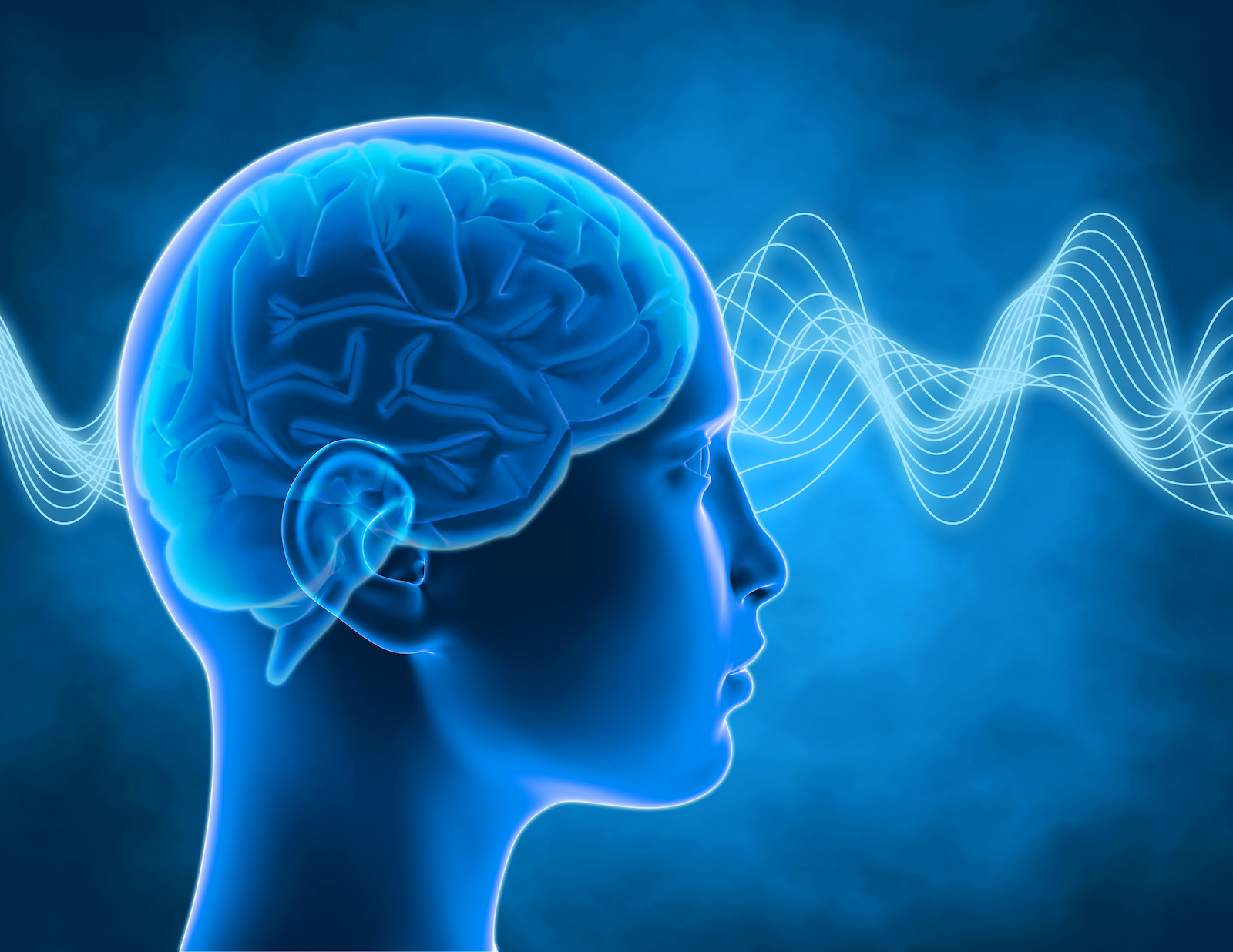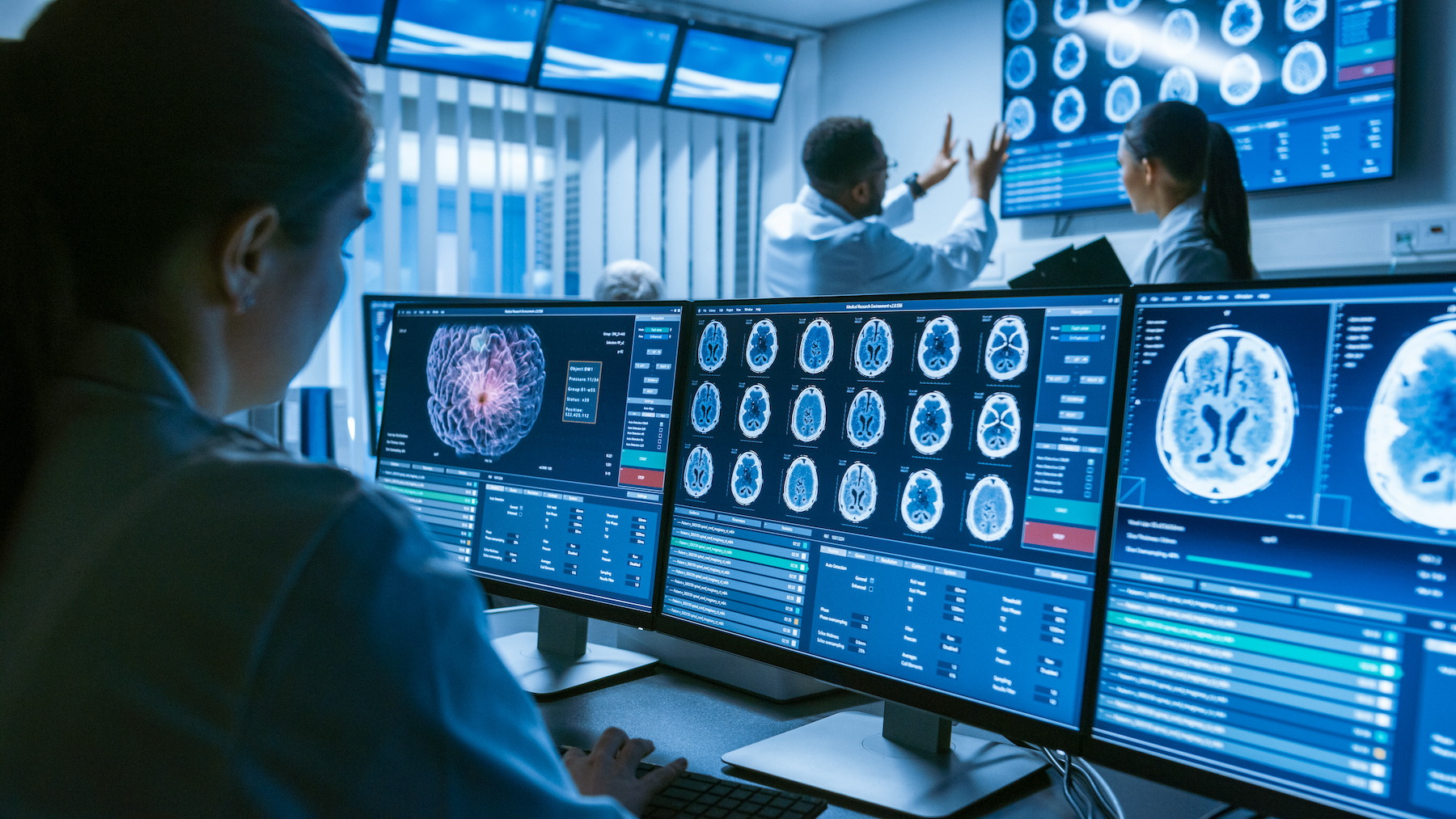MeRT Offers Lasting Relief from the Aftermath of Traumatic Brain Injury (TBI)
This Drug-free, Non-invasive Treatment Provides New Hope for Recovery
An Effective New Way to Recover from a Traumatic Brain Injury
A traumatic brain injury (TBI) can be a life-changing event. The initial injury is not only immediately painful, but it can also cause a wide range of symptoms, including physical, cognitive, and emotional problems. In some cases, these symptoms can last for months or even years.
Many treatments and therapies exist. to help with the after-effects of a head injury. However, sometimes you can still have debilitating symptoms long after the original injury. That’s where MeRT comes in.
Know that you’re not alone — and that help exists.
MeRT, or Magnetic e-Resonance Therapy, is a new, non-invasive, drug-free treatment for those lingering TBI symptoms. This treatment protocol is a customized use of transcranial magnetic stimulation (TMS) based on comprehensive diagnostic testing of your brain.
Scientific research reveals that when certain neural circuits in the brain are affected, it can lead to changes in brain function and contribute to the symptoms experienced in traumatic brain injury (TBI). MeRT therapy specifically addresses these altered brainwaves, restoring communication and promoting better overall brain functioning.
This well-tolerated treatment can also be used alongside other therapies for TBI recovery and can improve their effectiveness.

Call 480-448-2916 for more information.
Or fill in the form below and we will contact you.

What is a Traumatic Brain Injury?
A traumatic brain injury (TBI) is a sudden change in brain function due to an external force, such as a blow to the head. TBI can result in a wide range of symptoms, from mild to severe. And it can happen to anyone — regardless of your age or state of health.
Causes of a TBI include:
- Falls
- Motor vehicle accidents
- Sports injuries
- Assaults
- Explosions
- Penetrating head injuries
TBI can be classified as mild, moderate, or severe, depending on the severity of the injury and the symptoms present.
Mild TBI, also known as a concussion, is the most common type. Symptoms usually go away within a few weeks, but some people may experience long-term problems.
Moderate TBI can cause more severe symptoms, and it may take months or even years for someone to fully recover.
Severe TBI can cause permanent brain damage and disability. People with severe TBI may need lifelong care.
There is no one-size-fits-all treatment for TBI. Treatment will vary depending on the severity of the injury and the symptoms.
How a TBI Affects Your Brain
Traumatic brain injuries are more common than you may think and can have long-term effects if not fully treated. However, treating TBI can be complex, with unique symptoms for each person.
Here are some of the ways a TBI can affect brain function:
- Cognitive abilities: TBI can impact memory, attention, problem-solving, and decision-making skills.
- Motor skills: TBI can affect coordination, balance, and physical movements.
- Sensory processing: TBI can disrupt vision, hearing, taste, smell, and touch.
- Emotional and behavioral changes: TBI can lead to mood swings, irritability, anxiety, and difficulties with emotional control.
- Communication and language: TBI can affect speaking, understanding, reading, and writing.
- Social and interpersonal functioning: TBI can disrupt social skills and relationships.
- Sleep disturbances: TBI can cause difficulties with sleep patterns.
That’s why recovery and rehabilitation are so vital when you have a TBI — and why MeRT is such a breakthrough treatment. First, we begin with a comprehensive analysis of your brainwave patterns to determine where they are out of sync. We then plan a tailored treatment program to neuromodulate your brain waves and help improve brain communication and organization.

Here’s what one patient had to say after his MeRT treatment:
TBI Treatment “I’m back! My TBI turned me into someone I barely recognized. I was depressed, mean, and short-tempered. And I pushed through life filled with frustration and a deep sense of sadness that this was it. I just had to keep pushing through life with an overwhelming tiredness. I’m so glad I was wrong, and I think my direct reports and family are even more thankful. This treatment changed everything, and I am forever thankful.”

How MeRT Works to Treat TBI
MeRT is a breakthrough in treating TBI symptoms, as it focuses on the specific brain dysfunction that could cause your symptoms.
We analyze your brainwave patterns using a qEEG (quantitative electroencephalogram), also known as brain mapping. That’s because studies have shown that patients with TBI symptoms have clearly visible markers in their EEG results.
Once we identify your precise brain imbalance, we can then strengthen the brainwave activity with targeted TMS. This can bring balance to the brain and significantly reduce symptoms.
Call 480-448-2916 for more information.
Or fill in the form below and we will contact you.

For active or retired Military for Depression
TriCare Insurance is Available for active military personnel, veterans, and their families experiencing Depression. The FDA approved the TMS equipment to treat Depression and TriCare approved coverage for Depression in 2016.
Tricare Prime, Select, and TriWest all cover TMS for MDD. In some cases, patients may be experiencing a mixture of MDD, PTSD, and/or Traumatic Brain Injury (TBI) and in these cases, MeRT TMS may be the most effective treatment. We are in-network with all 3 and are a part of the VA Community Care Network. Patients with these circumstances would benefit tremendously from TMS. Depression can occur as a result of things experienced during your service. And it’s very common for other conditions to occur simultaneously, such as PTSD, Traumatic Brain Injury, and Anxiety. When you seek help with us for your Depression, our treatment called MeRT, or Magnetic e-Resonance Therapy, can also help with any other problems that you are experiencing.
Talk with our New Patient Coordinator
Our New Patient Coordinator is here to answer all your questions so you can make the most informed decision.
She can explain how MeRT works, our treatment protocols, fees, any possible insurance benefits, and more. She can also schedule you for the next steps: a consultation with one of our Doctors.
From there, we can determine if you may benefit from MeRT treatment, and you can decide if you would like to move forward. We hope you will consider getting more information. You deserve to live a life free from your symptoms — and we want to help you do just that!
Call 480-448-2916 for more information.
Or fill in the form below and we will contact you.













